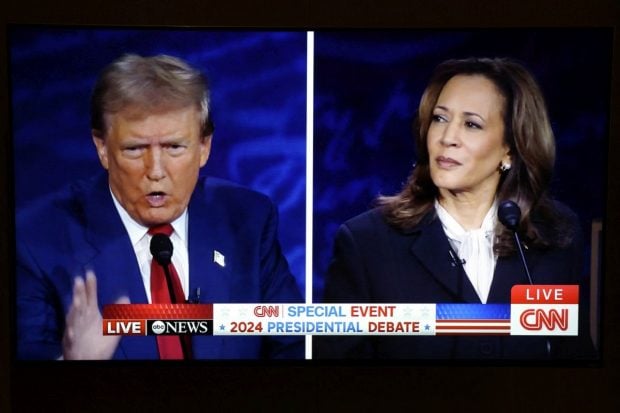My close read of the world’s most powerful posting addict turned up surprising results. Plus, a viral press release about AI, and Nvidia is accused of ‘unjust enrichment’
• Don’t get TechScape delivered to your inbox? Sign up for the full article here
“I hope I don’t have to cover Elon Musk again for a while,” I thought last week after I sent TechScape to readers. Then I got a message from the news editor. “Can you keep an eye on Elon Musk’s Twitter feed this week?”
I ended up doing a close-reading of the world’s most powerful posting addict, and my brain turned to liquid and trickled out of my ears:
His shortest overnight break, on Saturday night, saw him logging off after retweeting a meme comparing London’s Metropolitan police force to the Nazi SS, before bounding back online four and a half hours later to retweet a crypto influencer complaining about jail terms for Britons attending protests.
AI poses no existential threat to humanity – new study finds.
LLMs have a superficial ability to follow instructions and excel at proficiency in language, however, they have no potential to master new skills without explicit instruction. This means they remain inherently controllable, predictable and safe.
Large language models, comprising billions of parameters and pre-trained on extensive web-scale corpora, have been claimed to acquire certain capabilities without having been specifically trained on them … We present a novel theory that explains emergent abilities, taking into account their potential confounding factors, and rigorously substantiate this theory through over 1,000 experiments. Our findings suggest that purported emergent abilities are not truly emergent, but result from a combination of in-context learning, model memory, and linguistic knowledge.
Our work is a foundational step in explaining language model performance, providing a template for their efficient use and clarifying the paradox of their ability to excel in some instances while faltering in others. Thus, we demonstrate that their capabilities should not be overestimated.
A federal lawsuit alleges that Nvidia, which focuses on designing chips for AI, took YouTube creator David Millette’s videos for its AI-training work. The suit charges Nvidia with “unjust enrichment and unfair competition” and seeks class action status to include other YouTube content creators with similar claims.
Nvidia unlawfully ‘scraped’ YouTube videos to train its Cosmos AI software, according to the suit, filed Wednesday in the Northern District of California. Nvidia used software on commercial servers to evade YouTube’s detection to download ‘approximately 80 years’ worth of video content per day’, the lawsuit says, citing an Aug 5 404 media report.
[Judge] Orrick found the artists had reasonably argued that the companies violate their rights by illegally storing work and that Stable Diffusion, the AI image generator in question, may have been built ‘to a significant extent on copyrighted works’ and was ‘created to facilitate that infringement by design’.
Many site owners say they can’t afford to block Google’s AI from summarising their content.
That’s because the Google tool that sifts through web content to come up with its AI answers is the same one that keeps track of web pages for search results, according to publishers. Blocking Alphabet Inc’s Google the way sites have blocked some of its AI competitors would also hamper a site’s ability to be discovered online.



:format(jpeg):quality(80)/wp-content/uploads/2024/09/cum-dau-randament-birligea-si-stefanescu-la-fcsb-sorin-cartu-sfat-pentru-gigi-becali.jpg)
:format(jpeg):quality(80)/wp-content/uploads/2024/09/armata-1.jpg)
:format(jpeg):quality(80)/wp-content/uploads/2024/09/netflixv1-3.jpg)
:format(jpeg):quality(80)/wp-content/uploads/2024/09/inaltarea-sfintei-cruci-rugaciunea.jpg)
:format(jpeg):quality(80)/wp-content/uploads/2024/09/administratori-provizorii-companii-municipale-bucuresti-scaled.jpg)







:format(jpeg):quality(80)/wp-content/uploads/2024/09/a-2.jpg)
:format(jpeg):quality(80)/wp-content/uploads/2024/09/betano-1209.jpg)
:format(jpeg):quality(80)/wp-content/uploads/2024/09/leon-danaila.jpg)
:format(jpeg):quality(80)/wp-content/uploads/2024/09/repatrieri-de-clasa-in-superliga-la-fcsb-u-craiova-si-farul-1.jpg)
:format(jpeg):quality(80)/wp-content/uploads/2024/09/banca-alimente.jpg)
:format(jpeg):quality(80)/wp-content/uploads/2024/09/mateut-nicolae-stanciu-romania-lituania-3-1.jpg)
:format(jpeg):quality(80)/wp-content/uploads/2024/09/angajari-salariu.jpg)



:format(jpeg):quality(80)/wp-content/uploads/2024/09/edits-for-fanatik-2-3.jpg)
:format(jpeg):quality(80)/wp-content/uploads/2024/09/uni.jpg)

:format(jpeg):quality(80)/wp-content/uploads/2024/09/savvid-ok.jpg)
:format(jpeg):quality(80)/wp-content/uploads/2024/09/benzinav1.jpg)
:format(jpeg):quality(80)/wp-content/uploads/2024/09/statiunea-de-poveste-romania.jpg)